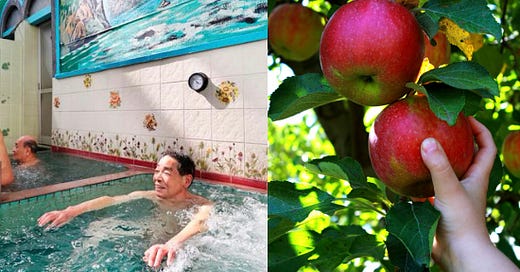The Real Solution to Inflation
Inflation has sent prices soaring, but books are still free at the library
The way to truly beat inflation is via the expansion of public goods. Inflation doesn’t change the price of books at the library: they remain free. Since the books in the library have been removed from the commodity realm and placed in the commons—they are publicly-owned and cannot be traded on the market—they are insulated from the effects of inflation.
This points to an obvious conclusion: the more we rely on institutions like the library, the less inflation matters. Or to put it another way: the more public goods we have, the less power capitalism has over our lives. Our task is to build an economy based on the library model.
If our government was serious about tackling inflation, it would be expanding public goods as quickly as possible. But that is not the goal of a liberal democracy: it is to insulate capitalists from the negative effects of capitalism's self-generated crises. This is why they fiddle with interest rates, rather than intervening directly in, say, the production of food. Expanding public goods places entire sectors of life outside of the commodity realm, which is in direct conflict with the interests of capitalists. That never-ending tension between the needs of humanity and the interests of capitalists is what constitutes the class struggle.
So in order to accomplish our task—to build an economy based on the library model—we will need to become active participants in the class struggle, attempting to claw back what is rightfully ours from the zombie engine of commodification. You don't have to be an optimist to do this. Even if you believe ecological catastrophe is looming and petro-capitalism is doomed—which is probably correct—everything we manage to win back makes our lives better both now and as this nightmare system crumbles. We do not need to have starry-eyed faith in a utopian revolution to believe that a tool library, for instance, would make our lives better and more resilient in the face of daunting challenges.
But neither do we have to abandon the idea of revolution. The primary difference between revolution and collapse is intentionality. The suicidal collapse of our civilization opens the door to a new world, which we can only win if we are positioned to take advantage of circumstances beyond our control. We can do that by working to build a better society today. We are much more likely to survive a cataclysm and emerge ready to shape the world anew if we have already established our foothold. Call it "disaster socialism."
So how should we aim to expand public goods today? First, by assessing which human needs are most impacted by capitalism's failures. The impact of inflation on food prices is a perfect point of entry. It has the practical and psychological effect of making alternatives more feasible and appealing. The economic and psychological terrain has become fertile for the seeding of counter-hegemonic institutions and ideas, such as municipal food forests. Such a "food library" has the immediately intuitive advantage of being immune to inflation: anyone can see that the price of apples from the community trees will not go up or down at the whim of the market. Those apples will always be there for us, no matter what is happening to the price of oil.
This intuitive benefit is essential because it does not require knowledge of or support for the grand vision. We cannot make much, if any, progress in the class struggle if everyone has to be onboard with every aspect of a fringe political ideology to participate. On the other hand, if we offer ways to participate that immediately and obviously improve the lives of participants—no reading of theory necessary—then we can make real progress. Decommodifying the means of subsistence in a time of political, economic, and ecological instability is one way to do that.
So what else can we do, aside from tool libraries and municipal food forests? I'm glad you asked.
Public supermarkets. Municipal copses and construction woodlots. County-owned sustainable heating contractors. Town saunas. Municipal nurseries. Natural building corps. Town canteens. Winter gardens. Town apiaries. Regional fabrics. Public foraging grounds. Community rail. The list goes on and on.
All of these represent the expansion of public goods. They replace the doomsday machine of commodification with the life-giving joy of the public library. This is all within our grasp, and it's never too late to get started.
For daily updates, you can follow me on Twitter, Instagram, Bluesky, and Mastodon.





Same goes for fuel, oil and gas--we need a petrocommunism that can take these out of the commodity markets so they can be used only when socially necessary. https://open.substack.com/pub/thespouter/p/petromarxismpetrocommunism-overview
While I support the library model, I think it's short sighted to say that the community food production is insulated from inflation costs. Growing food is not without inputs of materials and labor. While the public good approach does spread that cost over society, it does not eliminate those costs nor their vulnerability to inflation.